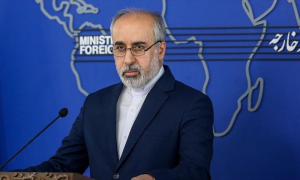LOS ANGELES: A large-scale healthcare strike focused on wage increases and staffing shortages has concluded its three-day run, with no agreement reached between industry titan Kaiser Permanente and the unions representing approximately 75,000 striking workers across multiple states.
The strike, which began earlier this week and spanned across California, Colorado, Oregon, and Washington, is set to officially end on Saturday at 6 a.m. Workers are expected to return to their positions within Kaiser’s hospitals and clinics, serving nearly 13 million Americans. Unfortunately, there were no scheduled bargaining sessions after discussions concluded midday on Wednesday.
The primary motivation behind this extensive strike was Kaiser’s alleged neglect of the severe staffing crisis, further exacerbated by the ongoing COVID-19 pandemic. Union officials emphasized that the strike was a last resort to draw attention to the critical understaffing issue, with the goal of garnering public support, as stated by the Coalition of Kaiser Permanente Unions. In addition to the majority of Kaiser facilities in California, approximately 180 workers from Virginia and Washington, D.C., also joined the picket lines on Wednesday to voice their concerns.
Caroline Lucas, the coalition’s executive director, stated on Thursday, “No health care worker wants to go on strike. I hope that the last few days have helped escalate this issue.”
Kaiser, headquartered in Oakland, California, expressed concerns that the work stoppage could result in appointment delays and affect the scheduling of non-urgent procedures. Hilary Costa, a spokesperson for Kaiser, assured that the company is diligently working towards reconvening bargaining “as soon as possible.”
Health workers’ demands
The unions representing Kaiser workers initially proposed a $25 hourly minimum wage and requested annual increases of 7% for the first two years, followed by 6.25% for the subsequent two years. Kaiser, which reported a $2.1 billion profit for the quarter, presented a counterproposal suggesting minimum hourly wages ranging between $21 and $23, dependent on the location. The company also emphasized hiring an additional 10,000 employees, augmenting the 51,000 workers already brought on board since 2022.
Union members argue that understaffing is contributing to the hospital system’s profits at the expense of patient care. They contend that the executives have not negotiated in good faith during discussions. Lucas mentioned that while there have been some tentative agreements, no significant strides have been made in vital areas such as long-term staffing plans and substantial wage increases. The coalition, representing approximately 85,000 of the health system’s employees nationally, is eagerly waiting for Kaiser to resume negotiations.
The previous contract for the workers was negotiated back in 2019, prior to the outbreak of the COVID-19 pandemic.
This healthcare strike transpired during a year marked by numerous work stoppages across various industries, including transportation, entertainment, and hospitality. The healthcare industry has particularly witnessed a series of strikes this year, grappling with burnout due to overwhelming workloads, significantly exacerbated by the enduring effects of the COVID-19 pandemic.























